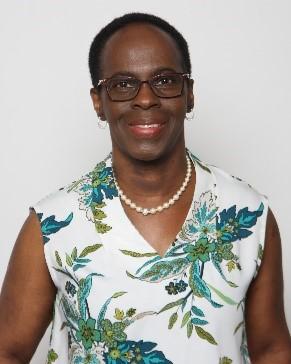Emancipation Day honours the emancipation of Black peoples who were enslaved. Years later, are Black people really free?

Learning
August 1 has a particular significance: It is Emancipation Day. It also holds a special significance for me because it is also my birthday! As a young child, I knew my birthday was always around a holiday weekend—Carnival—in Antigua, where I grew up. Later I connected the celebrations to the end of the institution of slavery, Emancipation Day. Over time, I have come to learn more deeply what that all means…I think.
I grew up hearing stories of my mother’s father, Sydney Walling, who was the first Black Postmaster General in Antigua. My grandfather started life in the post office as a sweeper. He worked his way up to positions with increased responsibilities, and even trained new Postmasters General sent by the Home Office. At one point he held a responsible position that required his signature on documents. One day a colonialist from the Home Office, who was assigned as a civil servant to Antigua, saw my grandfather’s signature. He slapped his wrists with a ruler, told him he was “trying to imitate his betters,” and demoted him to sweeping the floors. This story made me wonder what other systemic biases and barriers my grandfather had had to silently overcome. I grew to understand how monumental this accomplishment was for his family and for the community. I wondered about having to overcome these microaggressions and racial injustices in the country in which he was born, given that Emancipation had happened a full century before.
The dictionary meaning of emancipation is “the process of giving people social and political freedom.” That is the definition Black people, and others who have been enslaved, have understood, but over the years, have their descendants really been given social and political freedom? What does it take for us to realize that true promise of freedom? What does it take to become awakened to the vestiges of colonialism that still bind (visibly and invisibly) the descendants of the people who were enslaved?
Faith Reflection
I believe that the work of transforming perspectives about colonial practices (which still hinder Black people from living as “emancipated” people) and about racism (evident in and around us today) requires each of us to dig deep into our hearts. We need to do inner work to combat our own biases, learn about new perspectives, and open ourselves to new learning. We need to challenge our own assumptions and motives to become aware of the intention behind our actions.
This is only a first action. It must be followed up by additional actions. Rosa Parks once said, “To bring about change, you must not be afraid to take that first step. We will fail when we fail to try.”
What is that first step for you?
Living It Out
“Dear children, let us not love with words or speech but with actions and in truth” (John 3:18) serves as an invitation for us to move beyond words to action.
Ask yourself these questions:
- What one action do I want to take in my community to address systemic racism and bias?
- What one action do I commit to that will address structures and systems that hinder the full participation of Indigenous and racialized people in the life of the church?
Nelson Mandela provides instructive words for us as we move forward: “To be free is not merely to cast off one’s chains, but to live in a way that respects and enhances the freedom of others.”
—Deborah Richards (she/her) is a lay member of Northwood United Church in Surrey, BC, which is the traditional territory of the Semiahmoo, Katzie, Kwikwetlem, Kwantlen, Qayqayt, and Tsawwassen First Nations. She has supported her community of faith in various roles over the years, including leadership roles. She has an interest in furthering intercultural understanding and has been leading this effort through Pacific Mountain Regional Council’s Intercultural Ministry Network, and as co-chair of the Western Intercultural Ministry Network.
This reflection originally appeared in 40 Days on Anti-Racism 2022.